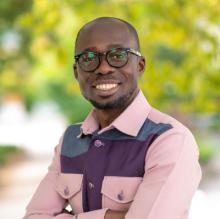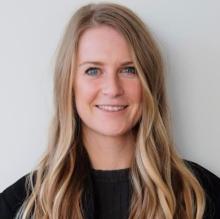As a Public Scholar and as a linguist, I believe it is my responsibility to conduct research that has an impact not only within academic circles but also in a broader social context, where it can contribute to the revitalization of Indigenous languages. My main goal in this project is to create a graphic novel derived from my dissertation research.
Research Description
My dissertation research focuses on analyzing modality in San Pablo Güilá Zapotec (SPGZ), an Otomanguean language spoken in the community of San Pablo Güilá in Oaxaca, Mexico. SPGZ belongs to the Central Zapotec region (Smith Stark 2007). Despite constitutional recognition of Indigenous language rights in Mexico (Article 2, Mexican Constitution 2024), Spanish overwhelmingly dominates government, education and healthcare, leading to significant endangerment of Zapotec languages. Discrimination against Indigenous people exacerbates this issue, resulting in a preference for Spanish in many Zapotec communities (Pérez Ruiz et al. 2015). Like other Zapotec languages, SPGZ faces similar threats, with its use primarily restricted to domestic contexts. In linguistics, modality refers to how languages express what is possible, necessary or desirable. Modality involves modal flavors (epistemic and circumstantial) and modal force (necessity, weak necessity and possibility) (Kratzer 1991). Epistemic readings are based on available knowledge (e.g., "he might come"), while circumstantial readings are based on certain facts, laws or goals (e.g., "you may go to the party"). Modals can express different modal forces such as necessity (e.g., "he must work today"), weak necessity (e.g., "he should work today") and possibility (e.g., "he can work today"). My aim is to investigate how modality is expressed in SPGZ and to analyze it semantically. The results of my research will contribute not only to a more detailed description and analysis of modality and the grammar of San Pablo Güilá Zapotec but will also enhance our understanding of cross-linguistic variation and inform hypotheses about possible linguistic universals. In addition to the theoretical outcomes, this project will contribute to language documentation efforts by providing richer descriptions of SPGZ grammar, benefiting the language community. The findings will be shared with the community and other interested parties in the field of Zapotec languages and will be presented in non-technical language to support ongoing language revitalization efforts in the community.
What does being a Public Scholar mean to you?
Being born and raised in Mexico, I am aware of the different forms of discrimination that many indigenous people face daily in government, education and healthcare. As a Public Scholar and as a linguist, I believe it is my responsibility to conduct research that has an impact not only within academic circles but also in a broader social context, where it can contribute to the revitalization of Indigenous languages. My main goal in this project is to create a graphic novel derived from my dissertation research. This novel will serve as a tool that goes beyond academic purposes, providing a product that is available, accessible and appealing to the San Pablo Güilá community. This graphic novel will be included in my dissertation, and it will fulfill multiple purposes: (1) as a storyboard that can be used to elicit modals cross-linguistically, (2) as a language revitalization tool and (3) as a teaching resource that can be used by elementary school teachers in San Pablo Güilá. As a Public Scholar, I will gain the skills necessary to enhance my work within the community and to make the knowledge I acquired during my PhD research accessible. Additionally, this experience will help me to build and strengthen connections with Indigenous researchers, teachers and the people of San Pablo Güilá.
In what ways do you think the PhD experience can be re-imagined with the Public Scholars Initiative?
In my opinion, the PhD experience can be reimagined through the Public Scholars Initiative by creating collaborative environments where research extends beyond academic circles. The Public Scholars Initiative offers us a forum and a platform to conduct research in innovative ways. Too often, research is conducted only for academic purposes, leaving the community excluded, which is ethically questionable, especially when working with communities that have faced long-standing discrimination. This is why I believe the Initiative will give us the tools needed to engage with communities and initiate social change that benefits the public as a whole.
How do you envision connecting your PhD work with broader career possibilities?
I would like that my PhD work will provide a public benefit. I believe my research can be valuable not only within academia (for researchers interested in modality in underrepresented languages) but also in other areas such as education (through the use of a graphic novel to teach certain concepts), language policy and linguistic revitalization.
How does your research engage with the larger community and social partners?
My research engages with community-based organizations, as well as educational institutions. Over the past five years, I have collaborated with the bàl gì Güilá collective and the Zapotec artist Yoosef Yoosef on various linguistic revitalization projects. I am committed to ensuring that community members are actively involved in every step of the research process, and I will provide them with a practical linguistic revitalization tool directly derived from my work.
Why did you decide to pursue a graduate degree?
I decided to pursue a PhD in Linguistics because I wanted to gain the skills and knowledge to continue my education in the indigenous languages of Mexico. In Mexico, we have had a colonial regime that promoted an “integration” of indigenous people and cultures into a “national culture” and the substitution of indigenous languages with Spanish (INALI 2024). Some of my post-graduation goals are to increase awareness of the importance of revitalization of Indigenous languages and to shed light on the linguistic discrimination that many Indigenous people face every day in multiple social contexts.
Why did you choose to come to British Columbia and study at UBC?
I chose to study at UBC because I believe it is an institution that can equip me with valuable tools and skills throughout my journey as a scholar. Additionally, UBC has excellent fieldworkers and semanticists who can help me further develop my abilities as a researcher and fieldworker.





